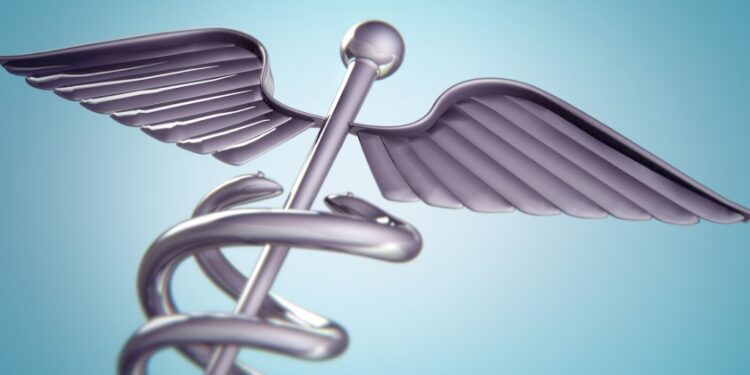The U.S. Department of Justice (DOJ) recently announced two large settlements in cases that stemmed from qui tam, or whistleblower, lawsuits. Both cases involve the healthcare industry: one case is a settlement with a clinical laboratory and the other is a settlement with a medical device manufacturer.
The qui tam provisions of the False Claims Act enable private citizens to file lawsuits on behalf of the government if they know of an individual or company defrauding the government. Qui tam whistleblowers are eligible to receive between 15 and 30% of the government’s recovery, if one occurs.
Inform Diagnostics, Inc.
The DOJ announced on July 20 that Inform Diagnostics, Inc., a clinical laboratory that “provides anatomic pathology services to physician practices” in the U.S., will “pay $16 million to resolve allegations that it submitted false claims for payment to Medicare and other federal health care programs.”
According to the settlement agreement, a whistleblower filed a qui tam lawsuit in January of 2019 and alleged that Inform “violated the federal False Claims Act by submitting false claims to Medicare and other federally funded healthcare programs for non-payable, nonallowable laboratory services conducted without a treating physician’s order.” The whistleblower alleged that this behavior was “part of an improper upfront, preorder testing scheme.”
According to the whistleblower, “rather than perform only the test(s) ordered by the treating physician, Inform automatically and systematically ran additional tests, including special stains, without the treating physician’s knowledge, consent, or order, and without a pathologist’s determination of medical necessity.”
The press release contains additional information, stating that with the settlement, “Inform admits that, between 2013 and 2018, it routinely and automatically conducted additional tests on biopsy specimens prior to a pathologist’s review and without an individualized determination regarding whether additional tests were medically necessary.” Thus, the government alleged that Inform caused false claims to be submitted to federal health care programs because some of the testing was medically unnecessary.
For their role in the case, the whistleblower will receive $2,720,000 from the U.S. government and $61,567 from Inform.
“Laboratories that bill for medically unnecessary tests drain funds from Medicare and other federally funded health care programs,” said U.S. Attorney Rachael S. Rollins in the press release. “Prioritizing profit over complying with the law wastes hard earned taxpayer dollars. Companies that engage in this fraudulent conduct will be held accountable.”
Biotronik Inc.
On July 22, the DOJ announced a $12.95 million settlement with Biotronik, Inc., an Oregon-based medical manufacturer. Biotronik will “resolve allegations that it violated the False Claims Act by causing the submission of false claims to Medicare and Medicaid by paying kickbacks to physicians to induce their use of Biotronik’s implantable cardiac devices, such as pacemakers and defibrillators.”
Jeffrey Bell and Andrew Schmid, who were both former “independent sales representatives for Biotronik,” filed a whistleblower lawsuit in March of 2018. They alleged that Biotronik “knowingly caused the submission of false claims for payment to federal healthcare programs by providing remuneration to physicians to induce them to use Biotronik’s” cardiac rhythm management (CRM) devices, according to the settlement agreement. The U.S. government intervened in the whistleblowers’ case in June of 2021.
The U.S. alleged that “Biotronik knowingly paid excessive payments to physicians with a purpose of inducing and rewarding their use of Biotronik’s pacemakers, defibrillators, and other cardiac devices.” In particular, Biotronik allegedly “abused its new employee training program by knowingly paying some of its physician customers to provide excessive employee trainings.” The settlement agreement states that according to written agreements between Biotronik and the physician customers, the physicians, or Training Physicians, “were to be paid a fixed fee of approximately $400.00 each time a Biotronik employee trainee received training during one of the Training Physicians’ CRM implant procedures.”
This practice continued even though “Biotronik’s compliance and training departments warned that Biotronik’s salespeople had too much influence in the selection of Training Physicians, that the Training program and resulting payments were being overutilized, and that the goal of educating Biotronik employees could be achieved without paying Training Physicians.” Biotronik would, “in certain circumstances,” allow “trainees to attend an excessive number of training procedures for which Training Physicians received payment from Biotronik” without an initial assessment of if the trainees needed more training.
In some cases, Biotronik salespeople, which included managers, “intentionally prevented otherwise qualified trainees from successfully completing the Training Program, not because they needed additional training, but rather as a means of ensuring that the trainee could attend more trainings, thereby purportedly justifying additional payments to Training Physicians.” Biotronik also allegedly paid the Training Physicians “for some trainings that either never occurred or were of little or no value to trainees.”
The government also alleged that Biotronik “knowingly paid for lavish meals, entertainment, and travel for certain physicians who are known to Biotronick and the United States with a purpose of inducing and rewarding their use of Biotronik’s pacemakers, defibrillators, and other cardiac devices.”
According to the settlement agreement, “Biotronik paid for winery tours, annual office holiday parties, and lavish meals with certain [physicians] and their guests at high-end restaurants.”
To settle the allegations, Biotronik will pay the U.S. $12,016,594. The company will pay the Medicaid Participating States, which are Arizona, California, Illinois, Missouri, and Nevada a total of $933,406. Altogether, Biotronik will have to pay $12,950,000 in this settlement.
Additionally, Biotronik will pay the two whistleblowers and their counsel $1,250,000 collectively; Bell will receieve $390.000 and Schmid will net $360,000. The whistleblowers’ counsel will receive $500,000 “for statutory fees and costs.”
Healthcare Industry Whistleblowers
Whistleblowers are key to uncovering fraud and corruption in the healthcare industry: fraudulent schemes can be particularly harmful to patients and erode trust in the medical system. In Fiscal Year 2021, qui tam whistleblowers helped the DOJ recover $1.6 billion in settlements. The DOJ highlighted health care fraud as “the leading source of the department’s False Claims Act settlements and judgments.”
Read the Inform Diagnostics, Inc. case press release here.




